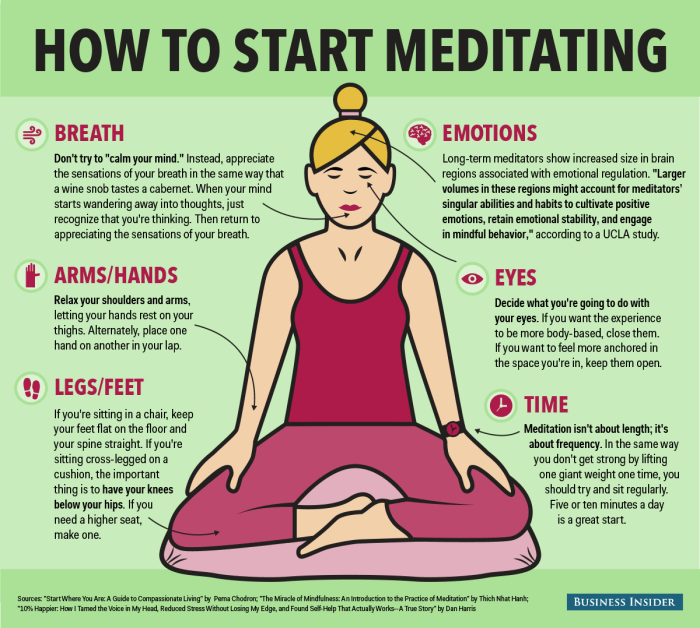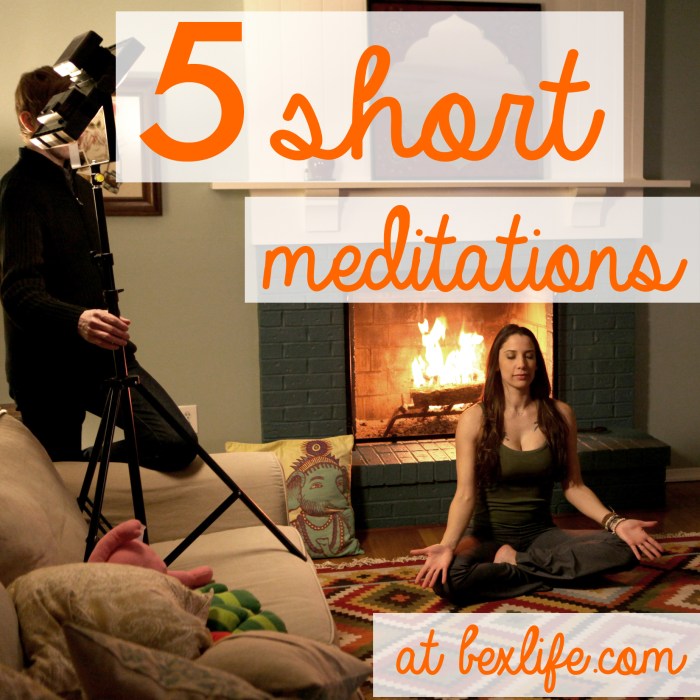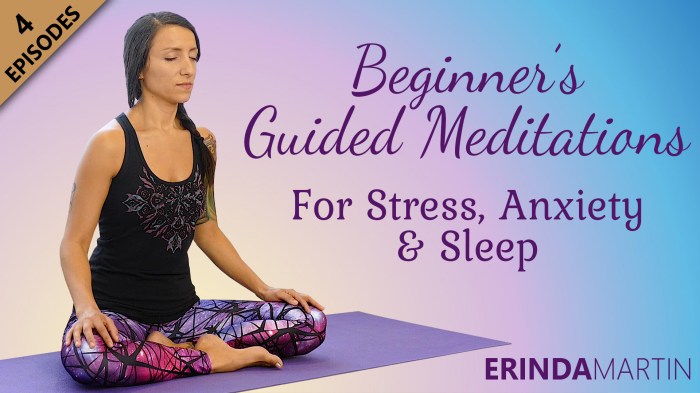Embark on a journey to discover the powerful effects of meditation for stress relief. From understanding how meditation combats stress to exploring various techniques, this topic delves into the transformative practice that can enhance your well-being.
Benefits of Meditation for Stress Relief

Source: businessinsider.com
Meditation is a powerful tool that can significantly reduce stress levels and promote overall well-being. By incorporating meditation into your daily routine, you can experience a range of benefits that help combat stress and improve your mental health.
Specific Techniques for Stress Relief
- Deep Breathing: Focusing on your breath and taking slow, deep breaths can help calm your mind and reduce stress levels.
- Body Scan: This technique involves mentally scanning your body for any tension or discomfort, allowing you to release physical stress and promote relaxation.
- Mindfulness Meditation: By staying present in the moment and observing your thoughts without judgment, you can cultivate a sense of peace and reduce anxiety.
Physiological Changes during Meditation
During meditation, the body undergoes various physiological changes that help combat stress. These changes include:
- Reduced Cortisol Levels: Meditation has been shown to lower cortisol levels, the stress hormone, leading to a decrease in anxiety and tension.
- Increased Serotonin Production: Meditation can boost serotonin production, promoting feelings of happiness and well-being.
- Activation of the Relaxation Response: Meditation triggers the body’s relaxation response, which counteracts the stress response and promotes a sense of calm.
Types of Meditation Practices for Stress Management

Source: npr.org
When it comes to managing stress through meditation, there are various types of practices that can be beneficial. Each type offers unique techniques and approaches to help individuals reduce stress levels and promote relaxation.
Mindfulness Meditation
Mindfulness meditation involves focusing on the present moment without judgment. It encourages individuals to observe their thoughts and emotions as they arise, allowing them to cultivate a sense of inner peace and awareness. This practice is effective in reducing stress by promoting a non-reactive mindset and helping individuals develop resilience to stressful situations.
Transcendental Meditation
Transcendental meditation involves the use of a mantra or sound to help individuals achieve a deep state of relaxation and transcendental consciousness. This practice is known for its ability to reduce stress, anxiety, and improve overall well-being by quieting the mind and promoting a sense of inner calm.
Loving-Kindness Meditation
Loving-kindness meditation focuses on cultivating compassion and goodwill towards oneself and others. By practicing loving-kindness meditation, individuals can enhance feelings of empathy, connection, and reduce stress by promoting positive emotions and reducing negative self-talk.
Body Scan Meditation
Body scan meditation involves systematically scanning the body for any physical sensations or areas of tension. This practice helps individuals develop body awareness, release muscle tension, and promote relaxation. Body scan meditation is effective in reducing stress by promoting physical and mental relaxation.
Guided Visualization
Guided visualization meditation involves imagining peaceful and calming scenes to promote relaxation and reduce stress. By visualizing positive images and scenarios, individuals can create a sense of inner peace and escape from stressful thoughts. This practice is effective in reducing stress and promoting a sense of calmness.
How to Start a Meditation Practice for Stress Reduction
If you’re a beginner looking to start a meditation practice for stress reduction, follow these simple steps:
- Find a quiet and comfortable space where you can sit or lie down without distractions.
- Choose a meditation technique that resonates with you, such as mindfulness or loving-kindness meditation.
- Set aside a specific time each day to practice meditation, even if it’s just for a few minutes.
- Focus on your breath or a specific focal point to anchor your attention and calm your mind.
- Allow thoughts and emotions to come and go without judgment, returning your focus to the present moment.
- Practice consistently and be patient with yourself as you cultivate a meditation routine for stress relief.
Scientific Evidence Supporting Meditation for Stress

Source: bexlife.com
Scientific research has shown that meditation can be a powerful tool in reducing stress and promoting emotional well-being. Let’s explore some of the key studies that demonstrate the effectiveness of meditation in managing stress.
Impact of Meditation on Brain’s Response to Stress and Anxiety
Studies have found that regular meditation practice can lead to changes in the brain that help reduce the body’s stress response. For example, a study published in the journal Psychoneuroendocrinology found that participants who practiced mindfulness meditation showed decreased activity in the amygdala, a key brain region involved in stress and anxiety responses.
Role of Meditation in Promoting Emotional Well-being and Resilience to Stressors
Another study published in the journal Emotion found that individuals who engaged in mindfulness meditation had greater emotional stability and resilience to stress compared to those who did not meditate. Meditation has been shown to enhance self-awareness, self-regulation, and the ability to cope with challenging emotions, all of which contribute to improved emotional well-being.
Integrating Meditation into Daily Routine for Stress Management

Source: squarespace.com
To effectively manage stress through meditation, it is essential to integrate meditation into your daily routine. By incorporating short meditation sessions, staying consistent, and creating a peaceful environment, you can optimize the stress-relieving benefits of meditation.
Designing a Daily Schedule for Meditation
- Allocate specific times during the day for meditation, such as in the morning before starting your day or in the evening before bed.
- Keep your meditation sessions short initially, gradually increasing the duration as you become more comfortable with the practice.
- Use reminders or alarms to prompt you to take a break and engage in a meditation session.
Tips for Consistency in Meditation Practice
- Set realistic goals for your meditation practice and track your progress to stay motivated.
- Find a meditation style that resonates with you to maintain interest and enjoyment in the practice.
- Join a meditation group or class to stay accountable and receive support from like-minded individuals.
Creating a Peaceful Environment for Meditation
- Choose a quiet and comfortable space for meditation, free from distractions and noise.
- Use cushions or a meditation bench to support your posture and enhance relaxation during meditation.
- Add calming elements to your meditation space, such as candles, essential oils, or soothing music, to create a serene atmosphere.
Ending Remarks

Source: serene.team
In conclusion, meditation offers a holistic approach to managing stress, with proven benefits for both mind and body. By integrating meditation into your daily routine, you can cultivate resilience and emotional well-being in the face of stressors. Start your meditation journey today for a calmer, more balanced life.